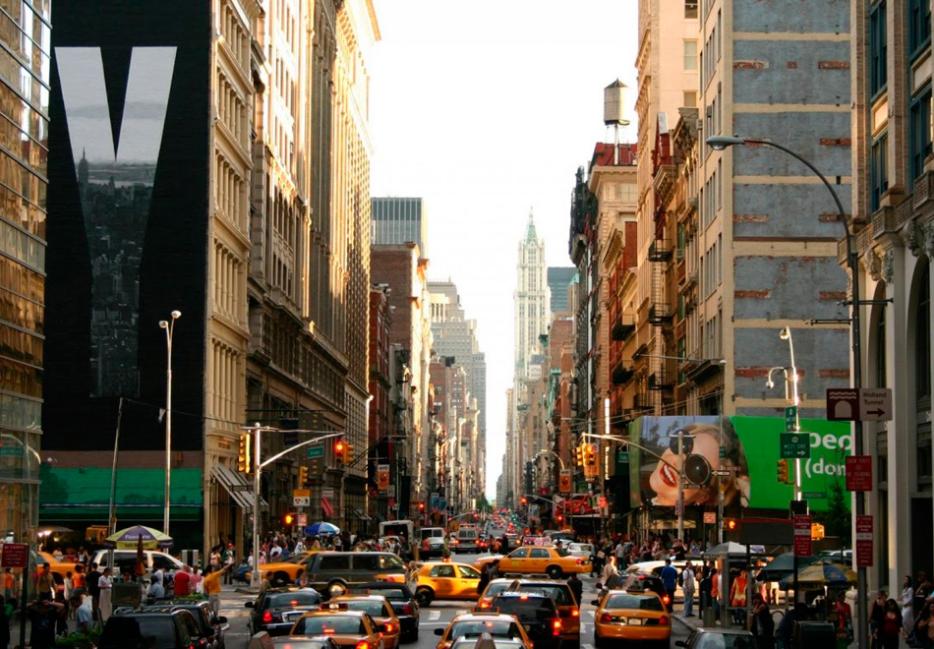In New York, some unfortunate millionaires are losing their minds over the loss of some parking spaces to the city’s new bike-sharing program. In Washington, D.C., lawmakers are debating whether the capital can be the Atlantic coast’s second city and still retain its historic height limit that prevents any buildings from being built higher than 130 feet. And in Toronto, the city is pondering whether to ban cars from one street during rush hour so that public transit can flow more smoothly. Predictably, the very idea has people frothing.
North American cities are growing again, or, at the very least, many of them have stopped hollowing out. The 2010 US census found that downtown cores are growing more than twice as fast as their respective regions in the largest cities, but even many smaller ones have stopped the decades-long slide that started, in some cases, in the 1950s. People are even tentatively starting to talk about a rebound in Detroit, if it can ever get its finances in order.
While the usual gloss is to say, “Hooray! Growth!” those headlines up top show the counterpoint: as more and more people try to move in to our cities, the battles for space—space on the roads, space in our homes—heats up. New York’s real estate is so unaffordable that the city is subsidizing rental units for people who make almost $200,000. D.C.’s housing market is increasingly just as unaffordable, despite being a city that was among America’s most dangerous not too long ago.
Competition for scarce urban space is something we’d forgotten about in North America: since the 1950s, people have decamped for the suburbs in huge numbers in the US, and while the trend in Canada started later, it was no less of an exodus. Toronto’s downtown spent 30 of the last 40 years losing people or jobs. It was that withdrawal that gave rise to the Escape from New York vision of the urban future. But economists now think cities, especially the largest cities, will be where the jobs of the future are made.
What’s increasingly clear, though, is how unprepared we are for that future. The reactionary right screams bloody murder about any reduction in the automobile’s privilege over the city, while some days it seems like the urban left wants to bronze our cities in some kind of frozen Jane Jacobs vision of the city’s past. And while much of what Jacobs wrote about in The Death and Life of Great American Cities will be of timeless guidance, her memory almost certainly can’t be a valid guide to cities in the 2010s and 2020s.
Jacobs, after all, was writing about a New York City that no longer exists: heavy industry had already begun its departure from the city, and from 1950 to 1960 Manhattan alone lost a quarter of a million people. The vision of the streets that Jane Jacobs captured was from a city that people were voting with their feet against and would continue to until the 1980s. Whatever you think sparked that, there’s no reason to think we can perfectly rebuild Greenwich Village in every city, nor should we try.
But the dirty secret of the 20th century failure of cities is that a lot of people were happier when they were failing. If you lived in the suburbs, the roads were emptier and parking was plentiful even if you worked downtown. And if you lived downtown, the rents were cheaper and the neighbourhoods offered striking diversity because of it. Our cities seemed sufficient because there weren’t as many people who wanted into them.
The current age has so many red-faced, spit-flying arguments over the city’s future because the present is so new and so different. While some cities (ahem, Toronto) have elected leaders based on the promise that we won’t have to make any decisions between services and taxes, the era of growing cities is going to be nothing but hard choices. The only bright side is that we saw what it was like when cities failed, and we’re seeing what it’s like now when they succeed—and the problems of success are much, much better ones to have.






